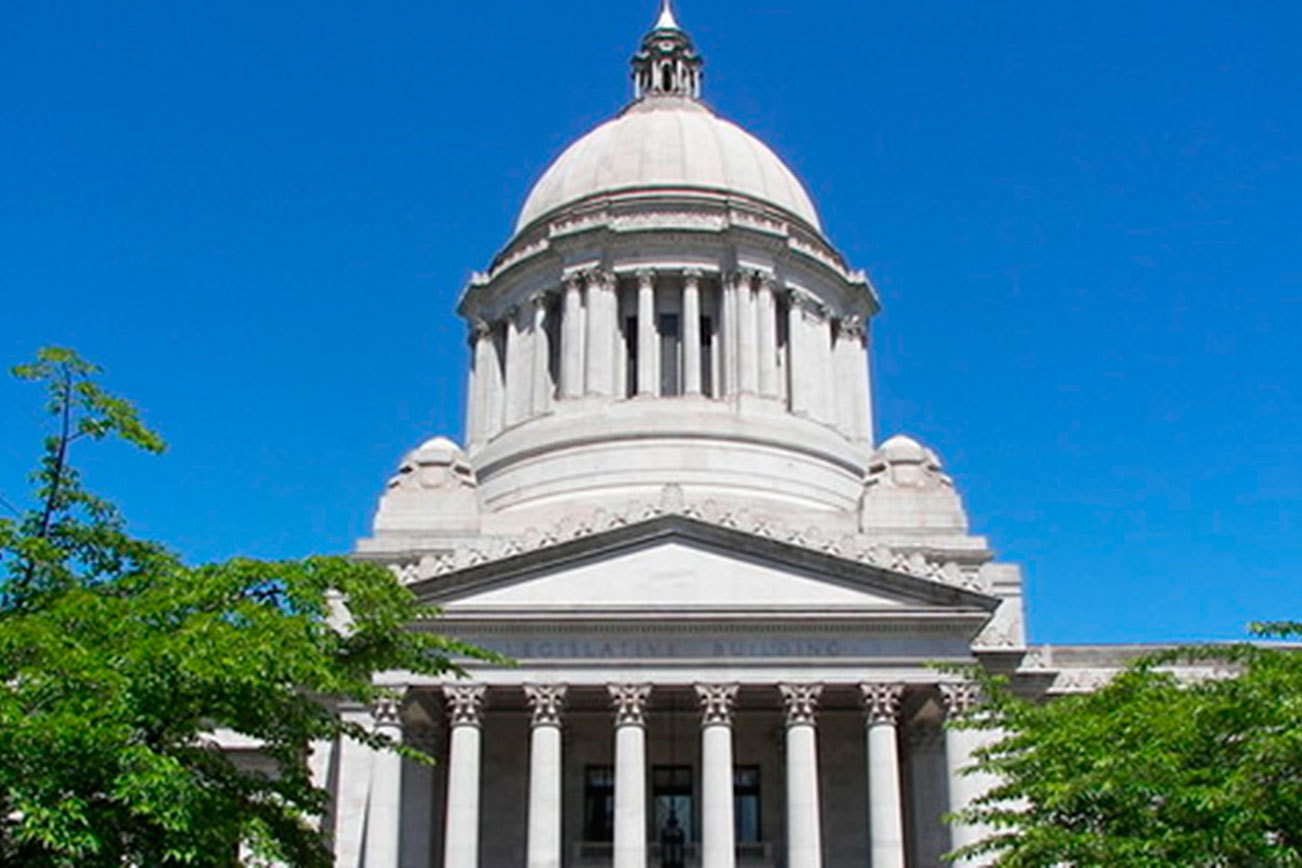Having failed to reach agreement on key budget and education funding issues, state lawmakers are headed for overtime in a Special Session.
Legislators were busy last week moving hundreds of bills through their respective chambers on final passage and sending them to the governor for approval.
Some of these bills had been stalled after the House or Senate refused to accept amendments from the opposite chamber.
Notable bills on which a final compromise was reached include the following:
Senate Bill 5289, Modifying the infraction of and penalties for distracted driving
Final passage in the Senate on April 19 by a vote of 39-10
The Senate agreed to the final version of the bill as passed by the House. The bill was delivered to the governor on April 21 for approval.
Sen. Kevin Van De Wege (D-Sequim) Yes
Senate Bill 5289, Modifying the infraction of and penalties for distracted driving
Passed the House on April 19 by a vote of 61-36 (one member excused)
As passed, this bill would replace current laws that prohibit the use of a hand-held cellular phone and texting while driving with a prohibition on a driver using any personal electronic device with his or her hands while driving.
It would permit minimal use of a finger to activate, deactivate, or initiate a function of a personal electronic device while driving.
The bill also provides exceptions for contacting emergency services; uses by transit system employees; uses by commercial motor vehicle drivers; and the the operation of two-way or citizens band radio services.
Distracted driving would be secondary traffic infraction under the bill, limiting enforcement to when a driver of a motor vehicle has been detained for a suspected violation of a separate traffic infraction.
Rep. Mike Chapman (D-Port Angeles) Yes
Rep. Steve Tharinger (D-Sequim) Yes
House Bill 2200, Protecting the privacy and security of Internet users
Passed the House on April 19 by a vote of 87-10 (one member excused)
This bill was first introduced on April 5 and would require broadband Internet providers to obtain opt-in consent to sell or transfer a customer’s personal information.
It also would require providers to obtain permission from customers before sending or displaying advertisements to them that were selected based on the customer’s personal information, such as browsing or social media use. Providers of broadband Internet services would be required to have a mechanism for a customer to grant, deny or withdraw approval to sell or transfer customer information, or to send or display an advertisement to a customer that was selected based on the customer’s information.
Under the bill, a provider would not be allowed to condition or refuse service as a consequence of a customer’s refusal to waive privacy rights.
Rep. Chapman Yes
Rep. Tharinger Yes
Senate Bill 5008, Facilitating compliance with the federal REAL ID act by modifying driver’s license and identicard design and fees
Passed the House on April 20 by a vote of 55-41 (two members excused)
This bill also was passed by both chambers earlier in the session, but the Senate refused to agree to amendments added by the House.
The House receded from its initial amendments and re-passed the bill with another amendment that was accepted by the Senate.
As passed, this bill would bring Washington into compliance with the 2005 federal REAL ID act, which requires state driver’s licenses and identification cards to have special security features and to be issued only to people who can prove they’re in the US legally.
Residents without the REAL ID enhancements on their driver’s licenses would need additional identification, such as a passport, to board commercial domestic flights, beginning on Jan. 22, 2018. States that have been granted an extension would have to meet REAL ID requirements by Oct. 21, 2020.
Washington already offers, but does not mandate, an enhanced driver’s license at extra cost that would meet federal requirements. Under the bill, the state would create a two-tier system, keeping the enhanced license and marking standard licenses as not valid for federal purposes.
Rep. Chapman Yes
Rep. Tharinger Yes
Senate Bill 5008, Facilitating compliance with the federal REAL ID act by modifying driver’s license and identicard design and fees
Final Passage in the Senate on April 20 by a vote of 36-13
The Senate, when it passed the bill earlier, had lowered the price of an enhanced license to $54, the cost of a standard license, but the House raised it back to its current price of $108.
The House also added language prohibiting the standard licenses from being used to determine or infer the holder’s immigration or citizenship status.
The compromise bill that was passed would set the cost of an enhanced license at $78 and also keeps changes made by House Democrats, including prohibiting the marked licenses from being used to determine or infer citizenship or immigration status or to spark an investigation or arrest that otherwise would not have occurred.
The measure is on its way to the governor for approval.
Sen. Van De Wege Yes
Senate Bill 5037, Making a fourth driving-under-the-influence offense a felony
Passed the House on April 20 by a vote of 85-11 (two members excused)
This bill was passed by the Senate by a unanimous vote in February. It would raise the classification of Driving Under the Influence (DUI) of physical control of a vehicle (PC) from a gross misdemeanor to a felony upon the fourth, rather than the fifth, offense.
In addition to other existing penalties, a $50 fee must be assessed to any person convicted, sentenced to a lesser charge or given a deferred prosecution as a result of an arrest for a DUI, PC, Vehicular Homicide or Vehicular Assault offense.
Revenue from the $50 fee must be used to fund Washington Traffic Safety Commission grants to organizations within counties to reduce driving under the influence of alcohol or drugs.
Rep. Chapman Yes
Rep. Tharinger Yes
WashingtonVotes.org is a project of the Washington Policy Center. See www.WashingtonVotes.org.


